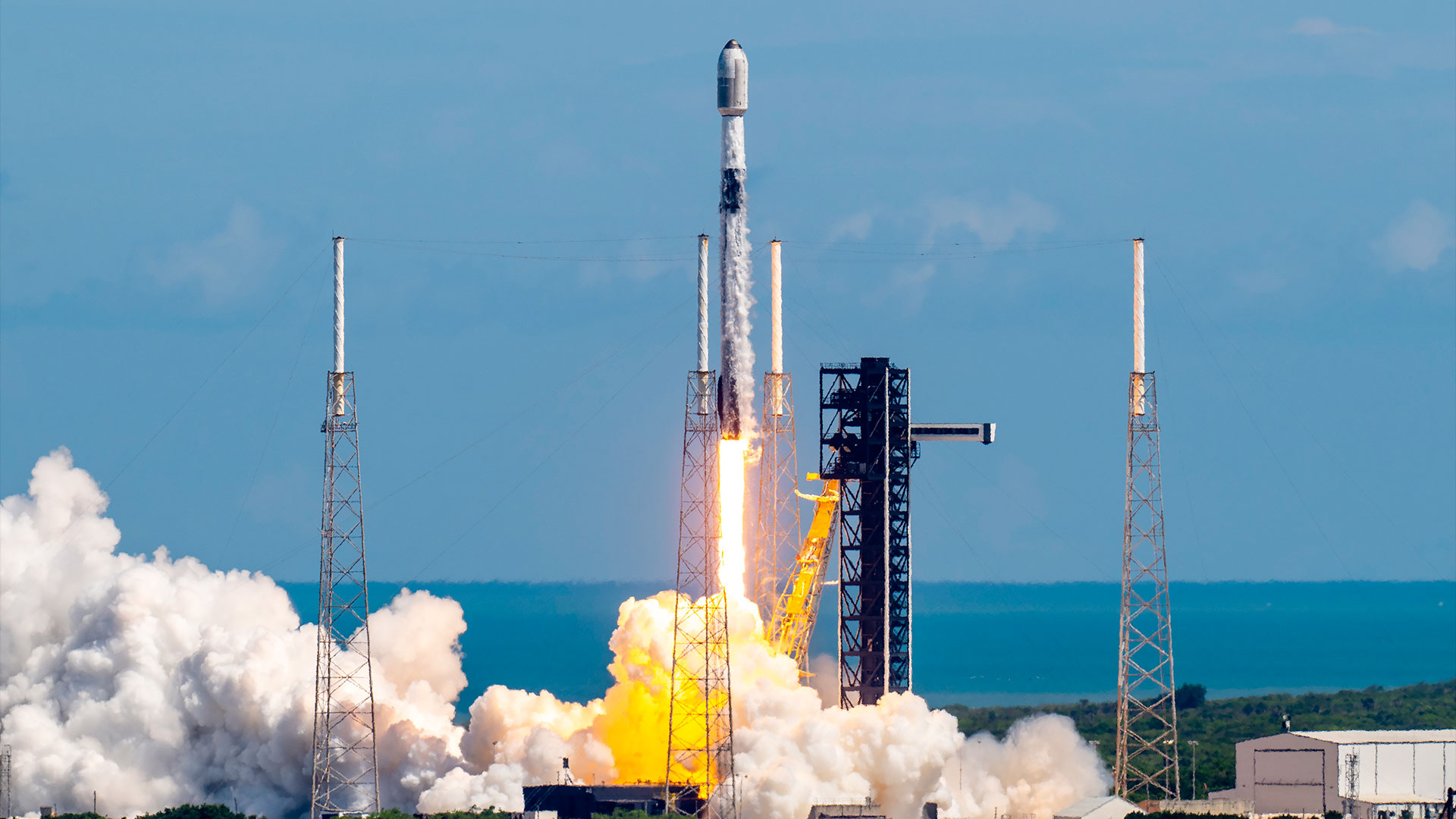The astronauts aboard the International Space Station just got nearly 4 tons of new supplies, including a $23 million titanium space toilet.
The gear arrived today (Oct. 5) aboard the private robotic Cygnus freighter, which reached the orbiting lab at 5:32 a.m. EDT (0932 GMT).
NASA astronaut Chris Cassidy, who commands the station's current Expedition 63, grappled the Cygnus with the station's huge robotic arm at that time. The cargo craft was officially bolted into place at 8:01 a.m. EDT (1201 GMT), while the two spacecraft were flying 261 miles (420 kilometers) above the South Pacific Ocean, NASA officials said. By coincidence, the docking occurred at the start of World Space Week 2020, which runs from Oct. 4 to Oct. 10 to celebrate the impact space exploration and technology have on daily life.
Related: See amazing launch photos of Antares and Cygnus NG-13!
Welcome to the @Space_Station, Kalpana Chawla!Today we received #Cygnus #NG14 spacecraft named after Kalpana Chawla, the first astronaut of Indian origin launched into space but died in the Shuttle Columbia disaster. Like last time, @Astro_SEAL and me captured the spacecraft pic.twitter.com/jMttWfj4TSOctober 5, 2020
Cassidy and his two Expedition 63 crewmates, cosmonauts Ivan Vagner and Anatoly Ivanishin, can now begin unloading the Cygnus, which launched Friday night (Oct. 2) from NASA's Wallops Flight Facility in Virginia with 7,624 lbs. (3,458 kilograms) of cargo on board.
The supplies include food, hardware, a variety of scientific experiments and the Universal Waste Management System, a pricey new space toilet that will be tested for potential future use in orbit and on the moon.
The Cygnus was built by Virginia-based company Northrop Grumman, which holds a NASA contract to fly robotic resupply missions to the space station. SpaceX has a similar deal, which it fulfills using the cargo version of its Dragon capsule. (SpaceX also holds a NASA commercial crew deal and is preparing to launch four astronauts to the station on Oct. 31).
Breaking space news, the latest updates on rocket launches, skywatching events and more!
This Cygnus, named the S.S. Kalpana Chawla after one of the seven astronauts who died in the 2003 space shuttle Columbia disaster, the 13th to reach the International Space Station and the 14th to take flight overall.
The S.S. Kalpana Chawla will remain docked to the station until mid-December. It will then fly freely around Earth for about two weeks, allowing researchers to conduct an onboard fire-safety experiment called Saffire-V. The freighter will then make a suicide dive into Earth's atmosphere, disposing of several tons of astronaut trash in the process.
Mike Wall is the author of "Out There" (Grand Central Publishing, 2018; illustrated by Karl Tate), a book about the search for alien life. Follow him on Twitter @michaeldwall. Follow us on Twitter @Spacedotcom or Facebook.
Join our Space Forums to keep talking space on the latest missions, night sky and more! And if you have a news tip, correction or comment, let us know at: community@space.com.

Michael Wall is a Senior Space Writer with Space.com and joined the team in 2010. He primarily covers exoplanets, spaceflight and military space, but has been known to dabble in the space art beat. His book about the search for alien life, "Out There," was published on Nov. 13, 2018. Before becoming a science writer, Michael worked as a herpetologist and wildlife biologist. He has a Ph.D. in evolutionary biology from the University of Sydney, Australia, a bachelor's degree from the University of Arizona, and a graduate certificate in science writing from the University of California, Santa Cruz. To find out what his latest project is, you can follow Michael on Twitter.
